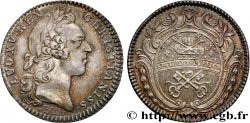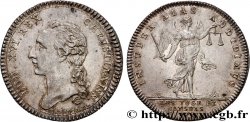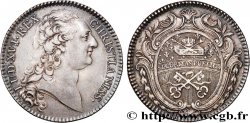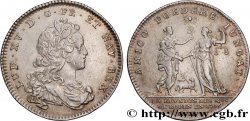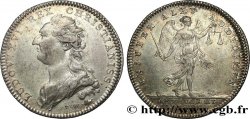fjt_233612 - CORPORATIONS PREMIER CORPS DES MARCHANDS DRAPIERS ET TISSERANDS - Guillier, quartinier 1704
280.00 €(Approx. 299.60$ | 240.80£)
Quantity
Add to your cart

Type : PREMIER CORPS DES MARCHANDS DRAPIERS ET TISSERANDS - Guillier, quartinier
Date: 1704
Metal : silver
Diameter : 30 mm
Orientation dies : 6 h.
Edge : cannelée
Rarity : R2
Catalogue references :
Obverse
Obverse description : Écu à une branche de gui renversée timbré d’un heaume à lambrequins ; à l’exergue : 17 - 04.
Reverse
Reverse legend : UT COETERAS - DIRIGAT.
Reverse description : Le navire des Drapiers allant à droite ; à l'exergue en trois lignes : LE PREMIER CORPS / DES MARCHANDS / DE PARIS.
Reverse translation : (Pour qu'il dirige les autres).
Commentary
Ce jeton appartient au premier corps des marchands de Paris : les drapiers et tisserands de laine. On connaît déjà un jeton aux armes d’Antoine Charles Langlois de la même année. Ce jeton appartient à Guillier, quartinier de la corporation. Mazerolle comme Blanchet décrivent un chêne renversé au droit, il s’agit évidemment d’un gui (armes parlantes) fixé sur une branche de chêne.







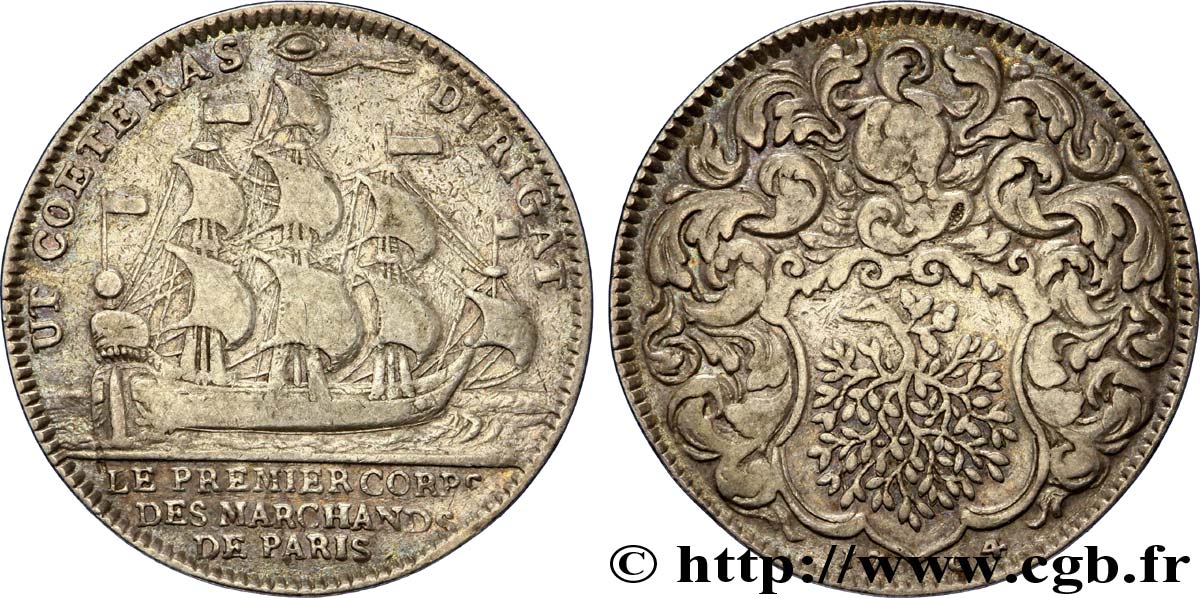
 Report a mistake
Report a mistake Print the page
Print the page Share my selection
Share my selection Ask a question
Ask a question Consign / sell
Consign / sell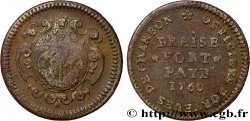
 Full data
Full data